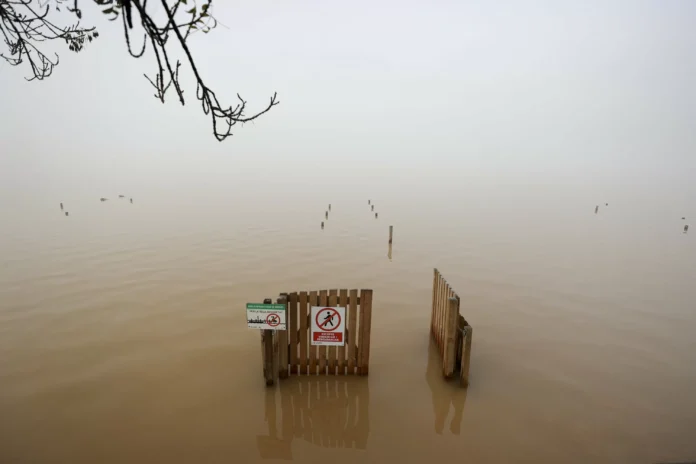Climate change is a global issue that is becoming increasingly urgent and concerning. It is a problem that affects not only the environment, but also poses a growing threat to human health. In fact, a major report released on Wednesday by experts has warned that we have wasted valuable time and the consequences of our inaction are now being paid in record-breaking ways.
The report, titled “Climate Change and Health: A Global Assessment”, was released by the World Health Organization (WHO) and the United Nations Environment Programme (UNEP). It highlights the alarming impact of climate change on human health and the urgent need for action to mitigate its effects.
According to the report, climate change is already causing an increase in extreme weather events such as heatwaves, floods, and storms. These events not only result in loss of life and property, but also have a devastating impact on the health of individuals and communities. The report also states that air pollution, which is exacerbated by climate change, is responsible for 7 million premature deaths every year.
But it’s not just the physical health of individuals that is at risk. Climate change also has a significant impact on mental health. The report highlights that the increasing frequency and intensity of extreme weather events can lead to anxiety, depression, and post-traumatic stress disorder among those affected. This is particularly concerning for vulnerable populations, such as children, the elderly, and those living in poverty.
The report also sheds light on the indirect effects of climate change on health. For instance, as temperatures rise, the transmission of diseases such as malaria and dengue fever is expected to increase. In addition, food and water scarcity due to changing weather patterns will lead to malnutrition and waterborne diseases. These effects will disproportionately impact low-income and marginalized communities, exacerbating existing health inequalities.
The experts behind the report have emphasized that the time for action is now. Dr. Maria Neira, Director of the Department of Environment, Climate Change and Health at WHO, stated, “The damage to our health is mounting and the window of opportunity to address the crisis is closing.” She added that the report serves as a wake-up call to governments and individuals to take immediate action to reduce greenhouse gas emissions and protect human health.
The good news is that there are steps we can take to address climate change and protect human health. The report highlights several key actions that need to be taken, including transitioning to clean and renewable energy sources, promoting sustainable transport and urban planning, and improving food and water security. These actions not only have the potential to reduce the negative impact of climate change on health, but also have numerous co-benefits, such as creating green jobs and improving air quality.
Individual actions also play a crucial role in addressing climate change and protecting health. Simple changes in daily habits, such as reducing energy consumption, using public transport, and adopting a plant-based diet, can make a significant difference in reducing greenhouse gas emissions.
It is also important for governments to prioritize the health impacts of climate change in their policies and planning. This includes investing in healthcare systems to build resilience and adapt to the changing climate, as well as implementing measures to protect vulnerable populations.
The report serves as a reminder that the consequences of climate change on human health are not a distant future scenario, but a current reality. We cannot afford to waste any more time. The experts have warned that the longer we delay action, the more severe and irreversible the impacts will be. We must act now to protect the health of our planet and its inhabitants.
In conclusion, the report by WHO and UNEP is a stark reminder of the urgent need to address climate change and its impact on human health. It is a call to action for individuals, governments, and businesses to take immediate and decisive steps to reduce greenhouse gas emissions and protect vulnerable communities. Let us not waste any more time and work together to create a sustainable and healthy future for ourselves and future generations.


